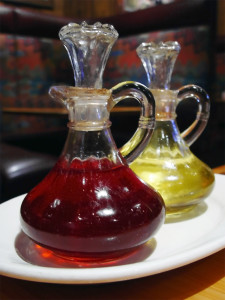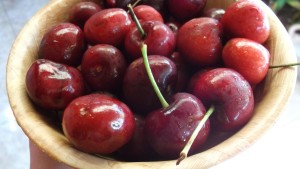What Is Gout?
If you’ve suffered from you, this explanation doesn’t do justice to the pain and discomfort you’re going through. Intense pain that often times turns up in the middle of the night like a bolt of lightning from the blue, triggered by something as gentle as a sheet rolling over your big toe.
Gout Symptoms
What is gout? Gout is a type of inflammatory arthritis that affects a number of joints in the body, often times in the foot especially the big toe.
It is mainly characterized by the swelling and reddening of the affected joints. In over half the cases of gout, it is the joint at the base of the big toe that is usually affected. Gout attacks are a painful ordeal that causes the joint to be red, tender and swollen.
What Causes Gout?
The onset of gout can be attributed to a number of genetic and diet related factors. It is caused by the buildup of uric acid in the body. Uric acid is formed when substances called purines are broken down in the body.
Purines exist in all our body tissues but are also present in foods such as liver and beans. Normally, uric acid is supposed to dissolve in the blood then later expelled from the body when the blood goes through ultra filtration in the kidneys.
The problem arises when uric acid levels build up in the blood. This can be due to one of three reasons:
· Excessive production of uric acid by the body.
· Excessive consumption of foods rich in purines.
· Failure of the kidneys to get rid of the excess uric acid.
High levels of uric acid in the body cause a condition known as hyperuricemia. Although this does not mean that gout is inevitable at this point, chances of the uric acid crystallizing are high. Gout develops when crystallized uric acid starts to deposit in the joints, causing a painful inflammation.
Severe cases of gout are characterized by the formation of kidney stones, blockage of the kidney’s filtering tubules with uric acid crystals and ultimately, kidney failure.
People at risk.
Chances of getting gout might increase under the following circumstances:
· You have been exposed to lead at one point in your life.
· Eating too many foods that have high purine content.
· If you have a genetic enzyme defect that makes your body unable to break down purines.
· If you are overweight.
· If there is a history of gout within your family.
· If you have ever undergone organ transplant.
· Using medicines such as aspirins and diuretics.
· Taking the vitamin niacin also increases chances of gout.
· Over consumption of alcohol.
1-Baking Soda for Gout
 Currently, there are various home remedies that may be used to cure the condition, including baking soda for gout. The effectiveness of baking soda in curing this condition may be attributed to its ability to raise the pH of body fluids. In some cases, patients have reported relief from gout in less than 24 hours after using this remedy. Read More Here…
Currently, there are various home remedies that may be used to cure the condition, including baking soda for gout. The effectiveness of baking soda in curing this condition may be attributed to its ability to raise the pH of body fluids. In some cases, patients have reported relief from gout in less than 24 hours after using this remedy. Read More Here…
2-Can Apple Cider Vinegar Treat Gout?

Apple cider vinegar is a go-to ingredient in home remedies. It has been linked to treatments for high blood pressure, weight loss and arthritis. Though evidence is generally lacking to prove these effects, some natural health gurus — including Thomas Baroody, author of “Alkalize or Die” — believe apple cider vinegar is effective for managing gout. Read Entire Post…
3-Cherries May Cut Risk of Gout Flare-ups

People with gout may be able to cut in half their risk of recurrent attacks by eating about 20 cherries a day, preliminary research suggests. The findings support years of anecdotal reports from patients that cherries help keep the inflammatory arthritic condition in check, doctors here say.Still, the study does not prove cause and effect, just that there appears to be an association between eating cherries and a lower risk of recurrent gout attacks. People with gout who eat cherries may share some other characteristic that makes them less prone to flare-ups. Click Here To Read More…
4-Gout and Berries

Berries are naturally low in purines and in this post we will examine its’ health benefits for a good overall gout diet. Berries are usually juicy, bright coloured fruit, some are sweet and some are sour; and do not have a stone or pit in them, although seeds may be present just like in a strawberry. The ascorbic acid in berries is very effective in repairing cell damage caused by gout. All berries are high in flavonoids which possess strong anti-inflammatory and antioxidant properties. See More Here…
Leave a Reply